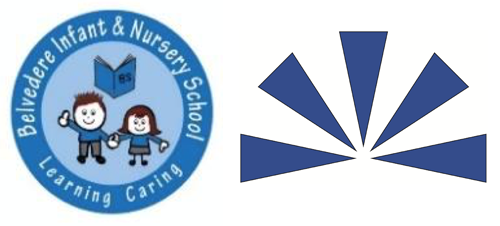Inclusion is at the heart of our Schools’ ethos.
At Belvedere Infant and Junior Schools, every member of the school community is regarded as being of equal worth and importance. We respect the unique contribution that every individual can make to the community and seeks to place this contribution within a clear structure which both embraces the highest possible academic aspirations and accepts individual differences in ability, aptitude and level of skills. Inclusion recognises differences; meeting the needs of individuals and taking positive action, so that everyone has equal access to the educational opportunities offered by the school. This includes regularly monitoring individual progress and achievement.
We follow the SEN code of practice and work supportively to meet a wide range of needs. Because every child is unique, we understand that their education may need to be adapted to allow them to reach their potential.
Staff follow a clear structure for identifying needs. Teachers and Learning Support Assistants are continually assessing pupil progress in order to set personalised activities and targets. Staff at the school are highly skilled at mapping curriculum and delivering lessons that meet the needs of all children – no matter what special educational need or disability they may have; this includes higher achieving pupils.
We work closely with pupils, parents, carers and other professionals to make decisions about what is best for each child. We are flexible, creative and resourceful in our determination to deliver the best, individually-tailored education possible.
Within our school community, we see the child rather than any disability and our pupils are naturally accepting of differences. This is something that makes us very proud.
Meeting Diverse Needs
At our Schools we recognise that we must actively seek to recognise and meet the very diverse needs of our pupils by:
- Monitoring the achievement and well-being of all our pupils and the quality/nature of the learning opportunities they are offered.
- Tracking each pupil’s academic, social and emotional progress and using the resulting knowledge to plan provision for the individual or groups of pupils.
- Identifying and then seeking to overcome potential barriers to pupils’ learning or their full participation in school life.
- Developing and deploying our resources to best reflect the various levels of need experienced by pupils.
- Taking care to ensure that vulnerable pupils, including those with additional or Special Educational Needs or Disabilities are appropriately supported.
- Sharing any concerns we may have regarding a pupil with their parents or carers and then seeking to work together with them, for the good of the pupil.
- Liaising closely with professionals from Children’s Services or other Health agencies involved in the care and support of pupils.
- Providing teaching and non-teaching staff with the support and training they need in order that their work promotes the best outcomes for each pupil.
Personalising the Curriculum
- School Leaders at all levels are responsible for ensuring that the curriculum; in its narrow and broadest senses, is personalised to match the needs of the pupils who attend our school.
- Our school uses the National Curriculum (2014). We follow the Local Authority Religious Education Scheme of Work. The School has a long term Curriculum Map that is used by year teams and individual class teachers to plan appropriate, differentiated activities for all pupils. This includes staff ensuring appropriate cross-curricular links are made and developing learning opportunities to match individual and age expected needs.
- School Leaders also ensure that the principles of Inclusion are applied to all activities that pupils engage in whilst at school or on Educational Visits; this includes the variety of After School Clubs that are offered and break and lunchtime activities.
- All members of the School Community are expected and encouraged to adopt behaviours that support the school’s inclusive ethos within both the explicit and hidden curriculum.
Management of Inclusion
- In partnership with senior leaders, the Head Teacher and the SENCO monitor, advise, evaluate and plan for the development of inclusive practice and provision across the school.
- The SENCO liaises with class teachers and those leading interventions to ensure pupils transfer learning from interventions into their learning in class.
Our Learning Support Assistants
- Learning Support Assistants (LSAs) work with individuals or groups of pupils during lessons to support pupils’ learning and promote their well-being. The work of an LSA is directed by the teacher during lessons.
- To address very specific needs, pupils may be withdrawn for short periods during class times to work individually. Alternatively some work may occur alongside others within a small group, when the need is common to all.
- In order to best utilise their support for pupils’ learning, the deployment of LSAs within the school is strategically managed by the SENCO in consultation with the Head Teacher and Class Teachers.


